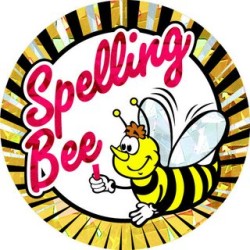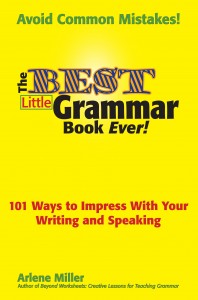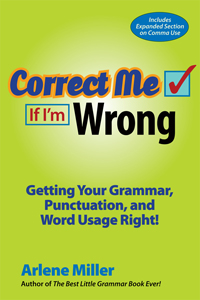 Charcuterie, collyrium, exochorion, hallenkirche, logodaedaly, chartula. Could you spell these words if your life depended on it?
Charcuterie, collyrium, exochorion, hallenkirche, logodaedaly, chartula. Could you spell these words if your life depended on it?
As you may know, one of my jobs is teaching English to 7th graders. One of my students has been asking all year to have a spelling bee. Well, the school year is winding down, the students are checking out for summer, and the books have been collected. I decided to have the spelling bee this past week without realizing that, coincidentally, the 87th Scripps National Spelling Bee was also this week in National Harbor, Maryland.
While I was asking challenging words like misspell (which is one of the 100 most commonly misspelled words in the English language), accommodate, and chrysanthemum, the National Spelling Bee is asking words like charcuterie, collyrium, exochorion, hallenkirche, logodaedaly, and chartula. The bee is sponsored this year by Micosoft and is open to students up through 8th grade.
Eleven million students began the bee in schools all over the country. Just 281 of those made it to the semifinals in the Washington DC area. After a week of grueling semifinals activities, the field is narrowed to 12 finalists and then a winner. The finals were televised on ESPN, so I guess spelling is a sport (yay!).
How does the spelling bee work? In the finals, each of the 12 contestants gets up one at a time for each round. They are given the word with any alternate pronunciations. The contestants are allowed to ask the definition, the part of speech, the etymology (language of origin), and for the word to be used in a sentence. They can ask these same questions as many times as they want, but they have two minutes to correctly spell the word. Contestants cannot start over again; if the spelling is incorrect, they hear the dreaded bell. When there are three contestants left, the bee moves to the Championship List of 25 words. If two spellers are left after those words are exhausted, they are declared co-champions, and that is exactly what happened this year. It is only the fourth time that there has been a tie, the last time 50 years ago.
Here are some interesting facts and statistics about the bee:
- The longest winning word (2004) was autochthonous (indigenous). Shortest winning word was luge (1984). 64 percent of past winning words were nouns, 18 percent adjectives, and 7 percent verbs. Since the bee began in 1925, there have been 48 girl winners and 41 boy winners.
- This year, all 50 states were represented as well as the Bahamas, Canada, China, Ghana, Jamaica, Japan, South Korea, the District of Columbia, American Samoa, Guam, Puerto Rico, the U.S. Virgin Islands, and Department of Defense Schools in Europe.
- Many of the contestants have been to the bee before, and some have siblings who have been finalists or have won before.
- The youngest contestant this year was 8 years old!
- The contestants have spelling coaches, sometimes their parents and sometimes not.
- The winner(s) receives a cash prize of $30,000 and also some gifts.
- One of the winning words in the final round this year was feuilleton.
- Contestants have two minutes to spell the word. Once a letter is out of their mouths, it cannot be changed.
- Contestants cannot write the word down, so you can often see them writing the word in the air. However, this year, many of them were typing the words on an imaginary keyboard.
Etymology: The origin of a word. Knowing the origin(s) of a word enable the spelling bee contestants to figure out the spelling even if they have never seen the word before. For example, if a word ends in a long a sound and is from the French, it may very well end in -et (think of ballet and beret).
Orthography: The art of spelling words with the correct spelling
Need a great grammar book? Need a great graduation gift?
Buy on Amazon!
Download the PDF.





I love the bee! I didn’t realize the winner gets so much money. No wonder the parents coach them! I hope you’ve seen the documentary Spellbound.
I have seen Spellbound and I used to show it to my students. I also saw Akeela and the Bee and Bee Season.
Arlene – This is off topic, but I must speak to it: In a book I was reading the author wrote “he was a plum target.” I looked to the dictionary and it said that “plum” was a fruit. OK. So I looked up “plumb.” Some of the meanings were “vertical” or “correct.” So it seems to me that the writer should have used “plumb.” Right??
Actually, the author is correct. Plum as an adjective means “desirable.
“http://dictionary.reference.com/browse/plum?s=t
My mom taught me this: embarrass is embarrassing enough to have 2 Rs and 2 Ss. In French, it means, among other things, cluttered, jammed with lots of junk (there’s a sense of quantity, hence the quantity of letters).
I know “busy as a bee”, but can you explain what a bee has to do with spelling? Is it bee = B?
In my opinion, I think $30,000 is way too much to give children for a “game”. Good spelling is almost an art and shouldn’t be rewarded so much money.
Otherwise, your blog is interesting, as usual.
Thanks, Arlene,
Agnès Glenn
Interesting…I don’t know why it it called a bee….there is also beeline…maybe it comes from that. It is bee and not just B. I think I will try to find out why they call it a bee. There are also quilting bees, I think.
As far as the money is concerned, I think those kids probably have the sense, or their parents do, to save it for college. I have to disagree with you. Look at what athletes are paid for a “game.” I am happy that something more academic is rewarded. While some people spell better than others, and part of it is an art, these kids study very hard for this. Better than making money by tweaking like Miley Cyrus or doing nothing like Kim and Kanye!
I disagree too Agnes. How is a spelling bee champion any different than the athlete or chess player, anyone who excels at what they do? They have competitions and get rewards. How is the person who worked really hard to be the best speller any different?
Hi, Arlene,
In 1953 I was the Post-WCPO Spelling Bee representative from Western Hills High in Cincinnati. However, I was embarrassed by the word “embarrass” (I spelled it with one “r”) during the citywide contest, so I didn’t get to the National Spelling Bee in Washington, DC. May I point out that “chrysanthemum” and the second instance of “etymology” (the origin of a word) are misspelled in the blog post? LindaJay
I have trouble with embarrass too….and I am embarrassed that I spelled chrysanthemum and etymology wrong…..will fix now!